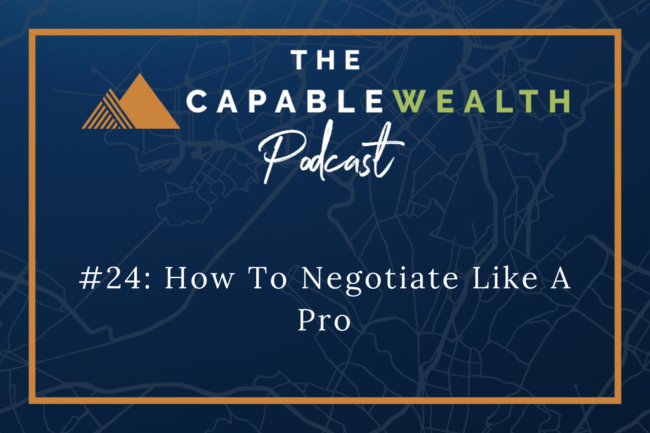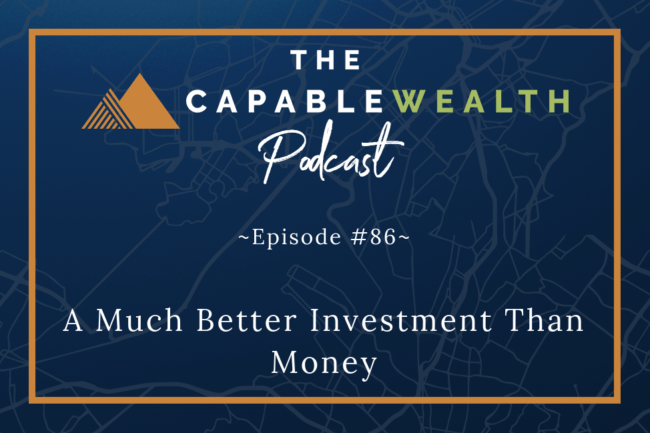The other day I was listening to an interview, and at one point the interviewee made a comment that caught my ear. He said:
“Rich people buy time and poor people waste time.”
It happened so fast in the interview that you could have missed it. The interviewer didn’t even dive deeper into the comment or ask a follow up question about it, which irked me. But it caught my attention, nonetheless.
Seeing as I’ve been on a bit of a “importance of time” kick (see here), this quote really resonated with me.
What Did He Mean?
I’m sure some people will see this quote and immediately roll their eyes about how the rich have more privilege and can buy whatever they need, including time. But that isn’t at all the point of the quote.
The individual was trying to emphasis the difference in mindset between the rich and poor, and how your mindset goes a long way in ultimately deciding your fate: Rich or Poor.
This translates perfectly into something I’ve written about, which is the idea that you don’t grow wealth by simply investing your money, you grow wealth by adopting the right mindset which will empower you to make smart decisions with your money.
[The Psychology Of Wealth-Building, And How It Has Changed Me]
So often people complain about not having enough time to do the things they want.
The simple fact is that we all have the same 60 minutes in an hour, 24 hours in a day, and 7 days in a week. It’s how we utilize that time that dictates if we will accomplish all of the things we wish we could.
What this quote is telling me is that the rich typically do a better job of optimizing the use of their time than the poor.
To better illustrate this, here are some examples of how the rich “buy more time,” and how the poor “waste time.”
How The Rich “Buy” More Time
The Rich Outsource & Delegate
One of the biggest things you can do to “buy more time” is to hire others to do tasks that are a waste of your time.
The easiest way to figure out which tasks are a “waste of your time” is to do some simple math.
Let’s say you earn $100,000/year at your job or business. Based on a typical 40-hour work week, you’d be earning about $50/hour.
So, any task that you could pay someone under $50/hour to do would free up more time for you to work and earn money at a $50/hour rate.
Instead of raking leaves for 3 hours, pay some kid $15/hour to do it, instead. If you work those same 3 hours and earn $150, then you will have made $105 more in comparison to the savings of having raked the leaves yourself.
And if you are making more than enough money, then maybe you can just enjoy those 3 extra hours engaging in some hobby that you’ve been meaning to do, or spending more time with your family. The choice is yours!
The Rich Increase Their Value Through Self-Education
This might not be as straight-forward, but it’s a big one.
Let’s say you own a business, and you’ve been using the same processes for years.
What if you learned a way to cut down on the time and effort it takes to accomplish your daily tasks? What if you learned about a new technology that could do the same for you? Or what if you read in a business book about how to optimize your processes and cut out unnecessary tasks that are wasting your time and are no longer needed.
These are all real possibilities. But if you don’t invest in yourself by engaging in self-education through reading and other learning activities, you might never learn about these things, and will continue doing the same time-intensive activities you always have.
It’s been documented that the average CEO reads over 50 books per year. On the other hand, the average American reads 12 book per year, with the median number of books being just 4.
This tells me a lot!
How The Poor Waste Time
The Poor Spend Their Time On Wasteful Activities
Watching TV is one of the biggest culprits of time-waste.
The average American spends somewhere between 4-5+ hours each day watching TV! Said another way, they watch upwards of 35 hours per week.
That’s almost equivalent to a full-time job!
You might say, “Well, maybe they are watching documentaries or other educational material.”
And I would say, “Yea, suuuuuuuure…” Maybe some of them are, but we know that most people aren’t.
Imagine what you could do with an extra 35 hours each week? For the average American, if they would just stop watching TV they’d immediately have that extra time.
Poor People Try To Save Money By Trading Their Time
This is basically the flip-side of what the rich do when they are outsourcing tasks.
I know plenty of people who have a scarcity mindset and would rather do everything themselves in order to save a few dollars.
They spend hours upon hours over their weekends tending to their yards, fixing up their homes, cleaning out their attics and homes, and anything else you can think of.
The obvious fact here is that if you don’t have the money to pay someone else to do these things, you have to do them yourself. No questions asked.
But once you start finding yourself in a position where you have some extra money, you begin to have the opportunity to make this choice – Do you continue doing these menial tasks, or do you devote your time toward higher-value projects that could end up making you more money in the future?
This is inherently what good businesspeople do – they try to allocate their time to the highest-valued tasks that will bring them the most return on their time.
What Do You Do With Your Time?
As I just mentioned, if you are just starting off and either don’t earn a good income or don’t have any savings, you are forced to do a lot of “wasteful” tasks that others might outsource. But the one thing that no one HAS to do is waste their time on things like watching TV, or spending time with people who aren’t interested in self-advancement.
These are just a handful of examples of how to think about properly using your time. But the easiest way to assess your own situation is to simply ask yourself the question, “Is what I’m doing helping to further my progress toward my goals, or is it just a distraction?”
The vast majority of the time, you don’t need to be the CEO of a Fortune 500 company to be able to answer this question.
Capably Yours,
Jared















